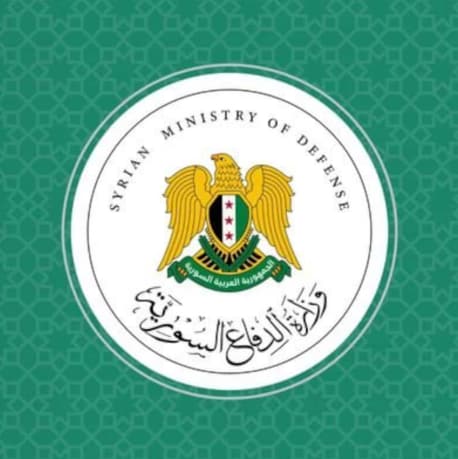The following report is now a complimentary offering from MEMRI's Jihad and Terrorism Threat Monitor (JTTM). For JTTM subscription information, click here.
Recently, an Indian news website published a profile of fugitive jihadi financier Farhatullah Ghauri, who is believed to be in Pakistan. Even Interpol has not been able to piece together a sketch of Ghauri except for noting that he has "a beard, a potbelly, and smokes heavily."

Following are excerpts from the Indian news report:
"Ghauri... Joined The Darsgah Jihad-o-Shahadat, Or Center For Jihad And Martyrdom, A Right-Wing Group Set Up By The Prominent Cleric Naseeruddin Mohammed Hannefuddin"
"The 59-year-old fugitive jihadist Farhatullah Ghauri – so secretive through his three-decade terror career that Interpol never succeeded in even obtaining a clear photograph – has set up a social media network to reach out to potential recruits in India for Al-Qaeda and Lashkar-e-Taiba [LeT]... 'The honor and life of Muslims are being endangered in India,' Ghauri says in one speech distributed online, 'but the mujahideen are preparing to wring the necks of the tyrants. Muslims will soon break the chains of tyranny that bind them.'
"In another recent speech, Ghauri calls for the assassination of judge A.R. Patel, who tried the cases of Indian Mujahideen [IM] terrorists involved in bombings in Ahmedabad and Surat. Ghauri's new social media outreach, the [Indian intelligence] sources said, seemed part of a wider jihadist effort to capitalize on the ongoing escalation of communal [inter-religious] violence across India to reach out to a new generation of jihad volunteers.
"'The Indian jihadist movement,' said a senior Telangana [State] Police officer familiar with Ghauri's case, 'has always relied on very tightly knit circles of [Islamic] clerics and kinship for recruitment. That has served it well because these closed groups are very resistant to penetration by intelligence. The fact even someone like Ghauri has to turn to social media shows how much the world has changed.'
"Even though the Hyderabad-born Ghauri has figured in police investigations dating back to 2001, he has never given speeches or interviews. Interpol's lookout notice, requesting member-states to arrest Ghauri on sight, states only that he has a beard, a potbelly, and smokes heavily.
"Few details have emerged of Ghauri's life, but he is known to have lived in Hyderabad's Kurmaguda [area] until 1994. Following the intense communal violence of 1992-93, Ghauri is believed to have joined the Darsgah Jihad-o-Shahadat, or Center for Jihad and Martyrdom, a right-wing group set up by the prominent cleric Naseeruddin Mohammed Hannefuddin."
"The Funding Operations Are Also Said To Have Been Backed By Sabeel Ahmad... An Older Brother Of Glasgow Airport Suicide-Bomber Kafeel Ahmad"
"Late in 1995, Ghauri left India for Saudi Arabia. He emerged... as a significant financier of Indian jihadists seeking to set up terrorist cells in India, and to travel to Pakistan for training at Jaish-e-Muhammad [JeM] or Lashkar-e-Taiba camps. Ghauri never affiliated himself with any single jihadist group, instead using personal relationships and networks to link volunteers to organizations ranging from the Jaish-e-Muhammad, Lashkar-e-Taiba, Al-Qaeda and the Islamic State [ISIS].
"Investigators have accused Ghauri of having funded multiple terrorist attacks in Hyderabad, including a bombing at a city temple in 2002, a suicide-bombing on a police office in 2005 and the attempted assassination of Bharatiya Janata Party [BJP] leader Nallu Indrasena Reddy. The jihadist leader is also alleged to have financed the travel of several individuals to training camps in Pakistan.
"Investigators have claimed Ghauri's recruits included Maulana Naseeruddin's son, Raziuddin Nasir – acquitted earlier this year of having participated in the serial bombing of Ahmedabad. Ghauri's son-in-law, Syed Zakir Rahim, was deported from Saudi Arabia in 2017 on charges of having plotted the assassination of Hindu nationalist politicians in Hyderabad.
"The funding operations are also said to have been backed by Sabeel Ahmad – a doctor deported from Saudi Arabia in 2020 and an older brother of Glasgow airport suicide-bomber Kafeel Ahmad. Ghauri also provided a kind of social-security network for Indian jihadists who run into hard times.
"Former Hyderabad mobile-phone salesman Shaikh Abdul Khaja told police he had stayed at Ghauri's home in Riyadh's downmarket Batah neighborhood in 2009. Khaja claimed he had turned to Ghauri for help after the Lashkar[-e-Taiba] cut off his Rs 30,000 monthly stipend for failing to deliver on terror-related tasks."
"[Syed Muhammad] Arshiyan, Then Living In Saudi Arabia [And Now Imprisoned In Turkey], Is Alleged To Have Helped The Islamic State [ISIS] Develop And Build Suicide-Drones And Short-Range Rockets"
"Links to the Lashkar [LeT] and Al-Qaeda
"Late in 2010, as Saudi Arabia began cracking down on Indian jihadists, Ghauri is believed to have moved to Pakistan. Abdul Rehman Ali Khan, a cleric now being tried on charges of having plotted to recruit jihadists, told police – in a testimony which, under Indian law, cannot be used for the purposes of his trial – that he stayed with Ghauri in 2015, on a visit to Rawalpindi.
"Ghauri, Khan claimed, was living in a five-room apartment, along with his wife, and two adult sons. The meeting with Ghauri was facilitated, Khan told police, by Syed Muhammad Arshiyan Haider, a Ranchi-born Aligarh Muslim University-educated engineer who is now imprisoned in Turkey. Arshiyan, then living in Saudi Arabia, is alleged to have helped the Islamic State develop and build suicide-drones and short-range rockets.
"Ghauri, in turn, is alleged to have helped Khan meet with Sajid Mir, a top Lashkar-e-Taiba commander who played a key role in the 26/11 attacks [on Mumbai in November 2008]. Mir, Khan is alleged to have said, also arranged for him to meet with top Lashkar-e-Taiba leader Zaki-ur-Rehman Lakhvi in Adiala prison."
Source: ThePrint.in (India), April 22, 2022.
The full text of this post is available to subscribers.
Please login or register to request subscription information from MEMRI



